A series of top-level conversations on the economic, technical and scientific conditions anticipated in the future of the energy industry.
Energy Prospectives will bring together world figures recognized for their experience, vision and knowledge of the energy industry so they can share their expertise with business owners, regulators, senior managers and academics.
Don’t miss the video with the most relevant contributions and reflections from the previous edition. See video
| 09:30 | INAUGURATION
• Francisco Reynés, Chairman of Naturgy |
| 09:45 | ENERGY TRANSITION AND DEVELOPMENT OF RENEWABLE ENERGIES
• Francesco La Camera, Director General of the International Renewable Energy Agency (IRENA) Colloquium |
| 11:30 | CLOSING SESSION |
| 11:45 | Networking coffee |
Simultaneous translation in English and Spanish in all sessions.
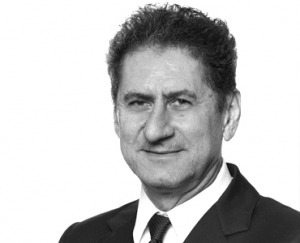
Speaker
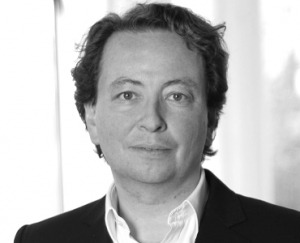
Speaker
Live Online & On Campus – IESE Madrid
Claudia Escobar
cescobar@iese.edu
IESE Industry Meetings
tel: +34 93 253 43 36
The 15 Energy Prospective will be offered simultaneously on campus, attendance only by invitation, and online.
The fees for this meeting:
Online: Free
On Campus: Exclusively by invitation
Online: Free
On Campus: Exclusively by invitation
Online: Free
On Campus: Exclusively by invitation
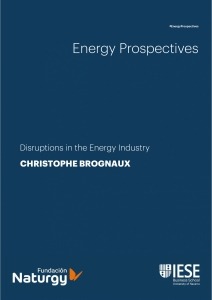
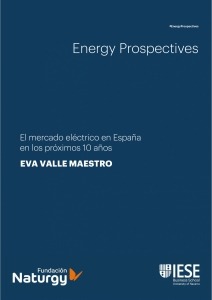
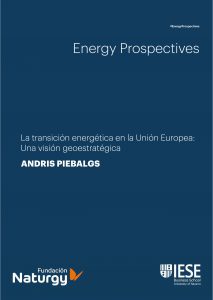
ANDRIS PIEBALGS
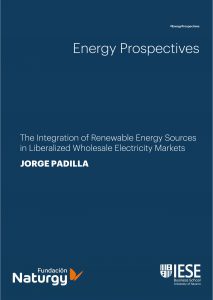
JORGE PADILLA
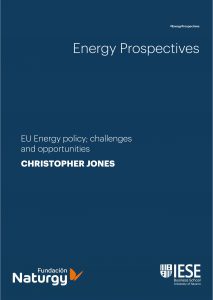
CHRISTOPHER JONES
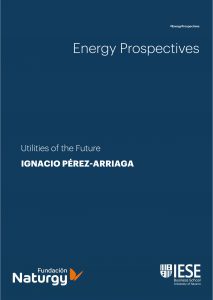
IGNACIO PÉREZ-ARRIAGA
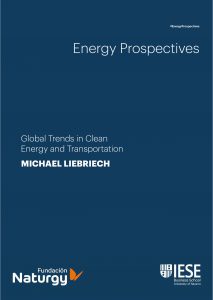
MICHAEL LIEBRIECH
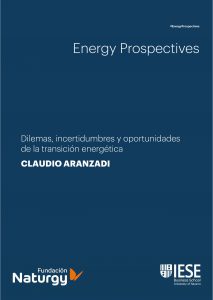
CLAUDIO ARANZADI
October 10, 2023 · Energy Prospectives – EP#14
July 5, 2023 · Energy Prospectives – EP#13
April 12, 2023 · Energy Prospectives – EP#12
November 4, 2022 · Energy Prospectives – EP#11
June 16, 2022 · Energy Prospectives – EP#10
March 17, 2022 · Energy Prospectives – EP#9
October 26, 2021 · Energy Prospectives – EP#8
June 9 de 2021 · Energy Prospectives – EP#7
March 16, 2020 · Energy Prospectives – EP#6
November 25, 2020 · Energy Prospectives – EP#5
July 14, 2020 · Energy Prospectives – EP#4
October 15, 2019 · Energy Prospectives – EP#3
June 20, 2019 · Energy Prospectives – EP#2
March 14, 2019 · Energy Prospectives – EP#1
The 27th IESE Food & Beverage Meeting, themed “In Search of Value Creation: Innovate. Elevate. Inspire.”, will delve into the intricate facets of value creation within the Food and Beverage industry.
Throughout the event, discussions will span a variety of topics including geopolitical dynamics such as how political conflicts and international relations can impact the industry’s value chain. Additionally, considerations will be given to the silver economy and how families and businesses are navigating the new global economic cycle.
Regulatory landscapes, sustainability imperatives, and the role of technology, particularly artificial intelligence and cybersecurity, in enhancing supply chain efficiency and product personalization will also be explored. Furthermore, attention will be given to brand value, talent management strategies, including diversification and talent attraction, retention and motivation.
The importance of board governance in fostering innovation and elevation within the industry will be emphasized throughout the discussions.
This event provides unparalleled opportunities for industry leaders, experts, and visionaries to connect, facilitating valuable networking exchanges and fostering collaborations beyond the confines of the conference.
Whether you’re an experienced professional or an emerging talent, this meeting serves as an indispensable platform for gaining insights, forging connections, and unlocking pathways to success in the continually evolving landscape of the Food and Beverage industry.
| 08:30-09:15 | Reception |
| 09:15-09:30 | Welcome and Opening
• Prof. Miquel Lladó, Academic Director of the Meeting, IESE Business School |
| 09:30-10:30 | The World Stage: Geopolitics in Focus: Bridging Global and Local Realities
How can political conflicts and international relations impact the sector’s value chain? How are families and companies coping with the new global economic cycle? What will the new cycle be characterized by? How can consumer companies anticipate these trends? • Ana Aguilar, Chief Economist, Deloitte España Moderator: Prof. Miquel Lladó, IESE Business School |
| 10:30-11:15 | Coffee Break |
| 11:15-12:20 | Beyond Skills: Crafting a Culture of Talent and Integration
What diversification and talent attraction strategies can help address potential labor shortages in specific areas of the food sector? Are robots a solution to shortages in human capital? What public-private partnerships and joint initiatives can be developed to ensure a continuous flow of talent into the food industry? • Rosa Maria Carabel, CEO, Eroski Moderator: Enrique Domínguez, Deloitte |
| 12:20-13:25 | Regulatory Symphony: Orchestrating Sustainability and Competitiveness
Can regulatory policies be designed to incentivise innovation and the adoption of sustainable practices? What strategies can businesses adopt to transform the challenges that companies face in trying to comply with that companies face in trying to comply with regulations into competitive opportunities? Are there measurement and monitoring mechanisms to measure these objectives? • Mauricio García de Quevedo, Managing Director, FIAB Moderator: Prof. Miquel Lladó, IESE Business School |
| 13:30-14:50 | Lunch |
| 14:50-15:50 | Unveiling Strategies for Sustainable Brand Value
What are the most effective strategies for building a strong brand? How can product and service innovation contribute to increasing brand equity? How can companies manage and protect their brand reputation in times of crisis? What branding strategies can help differentiate a brand in highly competitive markets? • Ignacio Elola, Global Commercial Director, Lactalis Moderator: Antonio Ibáñez, Partner, Deloitte Digital |
| 15:50-16:10 | Coffee Break |
| 16:10-17:15 | The Changing Face of Board Leadership
Do the same rules of the game still apply in the current situation or do they evolve at the same pace as society? What topics is it essential to address at board meetings? Will geopolitics and sustainability become boards’ fundamental role? • Prof. Jordi Gual, IESE Business School Moderator: Guillermo Blázquez, Managing Director, Buhler |
| 17:15-18:20 | AI’s journey in Transforming the Food Industry
How can artificial intelligence improve the efficiency of the food supply chain from production to distribution? How can artificial intelligence improve customization of food products and adapt to consumer preferences and needs? • Álvaro Ortín, Partner, IA & Data, Deloitte Moderator: Prof. Sandra Sieber, IESE Business School |
| 18:20-18:30 | Conclusions and Closing
• Prof. Miquel Lladó, Academic Director of the Meeting, IESE Business School |
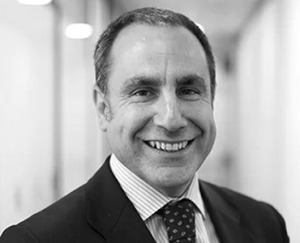
Meeting Co-organizer
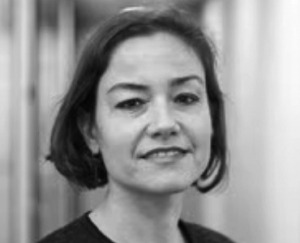
Speaker
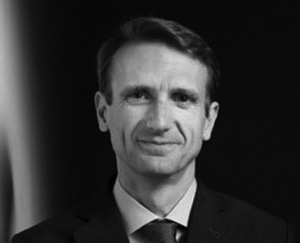
Moderator
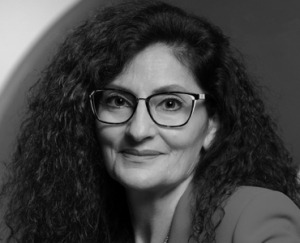
Speaker
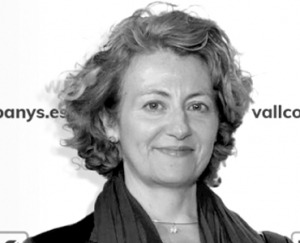
Speaker
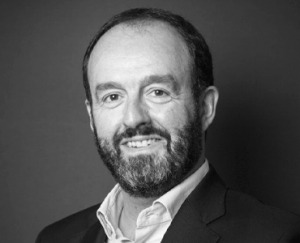
Speaker
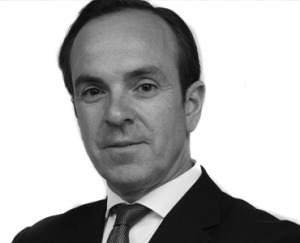
Speaker
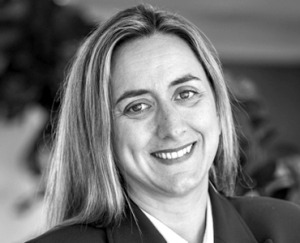
Speaker
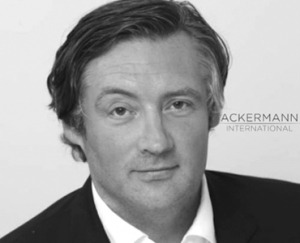
Speaker
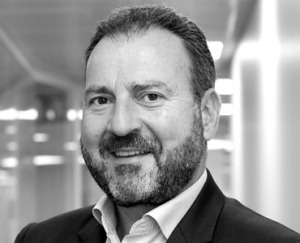
Moderator
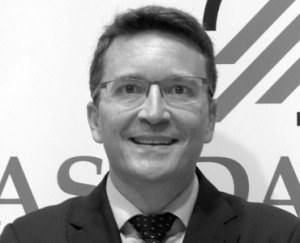
Speaker
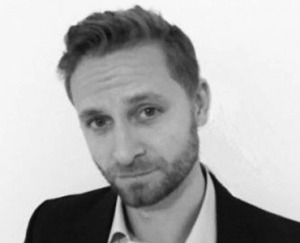
Speaker
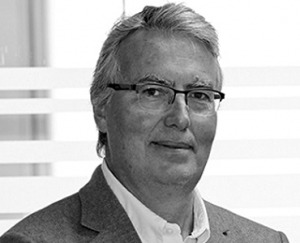
Speaker
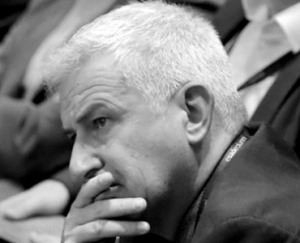
Speaker
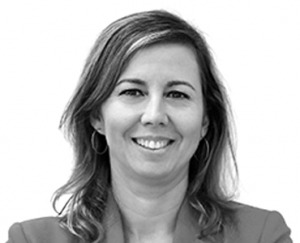
Speaker
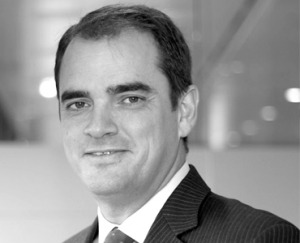
Speaker
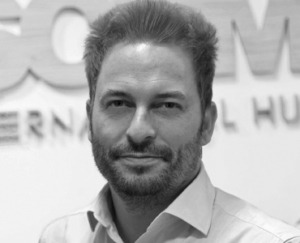
Speaker
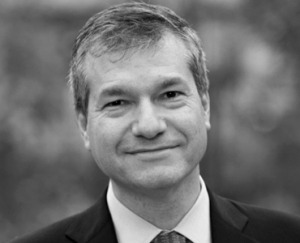
Speaker

Speaker
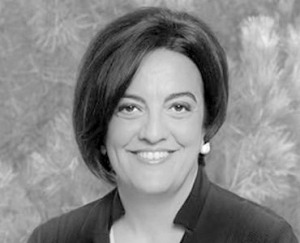
Speaker
The 27 IESE Food & Beverage Meeting will be held on IESE Barcelona
The fees for this meeting:
On Campus: € 1,000
On Campus: € 900
On Campus: € 700
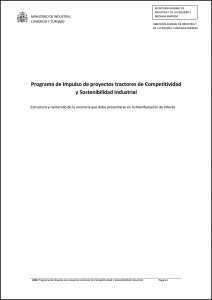
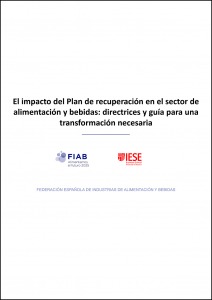
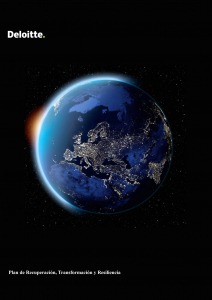

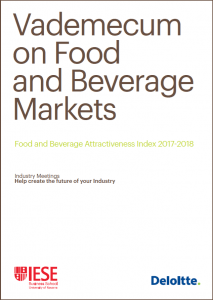
2023 · The new paradox: finding certainty in an uncertain business environment
2022 · The future of the sector. Towards new balances
2021 · Post-COVID strategy and perspectives · Session June 1, 2021
2021 · Post-COVID strategy and perspectives · Session April 14, 2021
2020 · Post-COVID strategy and perspectives · Session March 8, 2021
2019 · Feeding the Future
2018 · State of Play and Future Scenarios
2017 · Sustainable Growth Strategies: Challenges and Opportunities
2016 · A Global, Creative Look at Growth, New Markets and Change
2015 · The Road to 2025 and Beyond
2014 · The Four I-Engines of the Industry
2013 · Selling Across Continents
2012 · Growth in the recession. Examples for industry and retail
2011 · In search of added value: how to get consumers, margins and competitiveness back
2010 · Food wars: counterattack brands. Rebuilding the industry’s future
New Schedule
A series of top-level conversations on the economic, technical and scientific conditions anticipated in the future of the energy industry.
Energy Prospectives will bring together world figures recognized for their experience, vision and knowledge of the energy industry so they can share their expertise with business owners, regulators, senior managers and academics.
Don’t miss the video with the most relevant contributions and reflections from the previous edition. See video
| 18:00 | Opening
• Prof. Francisco Iniesta, IESE Madrid Campus |
| 18:15 | Energy: an overview
• Carlos Pascual, Senior Vice-Chairman of Global Energy and International Affairs for S&P Global Commodity Insights, responsible for leading the business lines in Latin America. He has also served as U.S. Ambassador to both Mexico and Ukraine. Discussion moderated by Prof. Massimo Maoret, IESE Business School |
| 20:15 | Closing
• Rafael Villaseca, Naturgy Foundation Chairman |
| 20:30 | Networking cocktail |
Simultaneous translation in English and Spanish in all sessions.
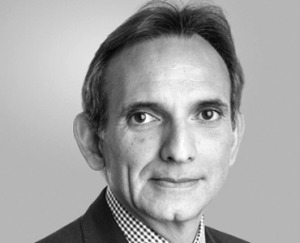
Speaker
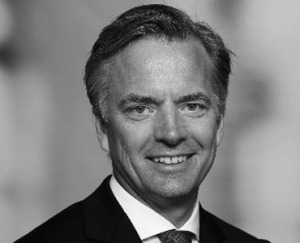
Speaker
Live Online & On Campus – IESE Madrid
Claudia Escobar
cescobar@iese.edu
IESE Industry Meetings
tel: +34 93 253 43 36
The 14 Energy Prospective will be offered simultaneously on campus, attendance only by invitation, and online.
The fees for this meeting:
Online: Free
On Campus: Exclusively by invitation
Online: Free
On Campus: Exclusively by invitation
Online: Free
On Campus: Exclusively by invitation



ANDRIS PIEBALGS

JORGE PADILLA

CHRISTOPHER JONES

IGNACIO PÉREZ-ARRIAGA

MICHAEL LIEBRIECH

CLAUDIO ARANZADI
July 5, 2023 · Energy Prospectives – EP#13
April 12, 2023 · Energy Prospectives – EP#12
November 4, 2022 · Energy Prospectives – EP#11
June 16, 2022 · Energy Prospectives – EP#10
March 17, 2022 · Energy Prospectives – EP#9
October 26, 2021 · Energy Prospectives – EP#8
June 9 de 2021 · Energy Prospectives – EP#7
March 16, 2020 · Energy Prospectives – EP#6
November 25, 2020 · Energy Prospectives – EP#5
July 14, 2020 · Energy Prospectives – EP#4
October 15, 2019 · Energy Prospectives – EP#3
June 20, 2019 · Energy Prospectives – EP#2
March 14, 2019 · Energy Prospectives – EP#1
The year 2023 was a great year for Spanish banking, given the fact that the five largest banks obtained a combined profit of more than €26.08 billion (0.75% return on assets), which is undoubtedly great news for the financial stability of the system, great news for bank shareholders, who will obtain a higher dividend, and great news for society as a whole because, when banks make a profit, it increases their capacity to support the country’s economy. The normalization of interest rates has contributed to this extraordinary result for the banking industry, which has also led to efficiency ratios of the Spanish banking sector of 37% to 45%, a sign of the strength of our retail banking sector worldwide. Spanish banks’ ROE is approaching its cost of capital. On average, it’s better than European banks’, though still below the figures for large US banks. However, American regional banks are experiencing levels of credit card default (8.16%) and an associated debt balance decline (9.36%) that has been unheard of in the last 40 years.
As for large European banks, market value and book value are finally converging, which can be explained, among other reasons, by the fact that, when growth opportunities are lacking, the shareholder remuneration policy is a decisive factor in the industry’s valuation. However, non-performing loans on the balance sheets of banks from their banking activity in Spain range from 2.11% to 4.22% with a cost of credit risk that is rising very gently and reached 0.28% to 0.62% in the last quarter of 2023. This has prompted Spanish bank managers to be ready to make decisions to sell portfolios of non-performing assets early, given that there is an active market for NPLs.
Traditional banks, with their intense regulatory and supervisory pressure, which provides high-quality information on the NPLs on their balance sheets, represent only one part of the financial system. There is another part that is growing discreetly in the shadow of this heightened banking regulation, where little is known of the default level of the loans it originates, the debt it acquires from banks and its collection management practices. This lack of symmetry is inappropriate, especially when, the larger the organization working in the shadow banking system, the less information is available on its methods.
In addition, with regard to the decarbonization of the economy, regulation and supervision highlight the importance of assessing the impact of transition risk on banks’ credit and securities portfolios, which is another example of the lack of symmetry with shadow banking.
We will discuss all of this at 19 Banking, along with the economic situation in Ukraine, the social impact of banking, the entry into force of Basel 3.5, the digital euro project, the situation of payment systems, the digitalization of the industry, macroeconomic expectations and other current issues, with the CEOs of Spanish banks and prominent representatives of countries and national and international financial institutions, as well as academics and industry experts.
| 09:00-09:25 | Reception and registration of participants |
| 09:30-09:50 | Welcome
• Prof. Germán López-Espinosa, Academic Director, Banking Industry Meeting, IESE Business School |
| 09:55-10:30 | The use of data: improving the customer experience
• José Antonio Álvarez, Vice Chair and Board Member, Santander Group Moderator: Prof. Gaizka Ormazabal, IESE Business School |
| 10:30-11:00 | Coffee Break |
| 11:15-11:50 | The Banking Sector: Intervention by the Governor of the Bank of Spain
• Pablo Hernández de Cos, Governor of the Bank of Spain and Chairman of the Basel Committee on Banking Supervision (BCBS) Moderator: Prof. Núria Mas, IESE Business School |
| 12:00-12:35 | The financial sector in the current economic environment
• Gloria Ortiz, CEO, Bankinter Moderator: Manuel Pérez Peral, Senior Advisor, FTI Consulting |
| 12:45-13:20 | SME and financial stability
• César González-Bueno, CEO, Sabadell Moderator: Miguel Ángel Díez, Head of Debt Advisory and Financial Restructuring, FTI Consulting |
| 13:30-14:30 | Lunch |
| 14:45-15:25 | The capital markets: the energizing effect of IPOs and OPAs. Transparency, investor exposure, and corporate control
• Juan Aguayo, Partner at Cuatrecasas. Corporate. Capital markets Moderator: Konstantin Sajonia-Coburgo, Senior Advisor, FTI Consulting |
| 15:30-16:05 | Corporate operations in the current environment
• Juan Carlos Escotet, President, Abanca Moderator: Prof. Núria Mas, IESE Business School |
| 16:10-16:40 | The technological advancement and the new competitive environment of banking institutions
• Fernando Restoy, President, Financial Stability Institute, Bank for International Settlements Moderator: Prof. Mireia Giné, IESE Business School |
| 16:45-17:15 | Coffee Break |
| 17:20-17:55 | The growth of alternative financing
• Juan Buades, Partner, Cross Ocean Partners Moderator: Sergio Vélez, Leader of FTI South Europe, FTI Consulting |
| 18:00-18:45 | Banking, real estate and hotel sectors
• Víctor Martí Gilabert, Founder, GMA, Atom Hoteles Socimi and Victoria Hotels and Resorts Moderator: Eloy Mayorga, Managing Director (Corporate Finance), FTI Consulting |
| 18:50-19:25 | Trends that will shape the future of the industry
• José Ignacio Goirigolzarri, President, CaixaBank Moderator: Prof. Germán López-Espinosa, IESE Business School |
| 19:30 | Spanish wine |
| 08:30-09:00 | Reception and registration of participants |
| 09:00-09:15 | Welcome
• Prof. Germán López-Espinosa, Academic Director Banking Industry Meeting, IESE |
| 09:20-09:55 | Opening: Banking System Update
• Luis de Guindos, Vicepresident, European Central Bank Moderator: Prof. Gaizka Ormazabal, IESE Business School |
| 10:00-10:35 | Banking resolution challenges
• Jesús Saurina, Board Member, Single Resolution Board Moderator: Prof. Germán López-Espinosa, IESE Business School |
| 10:45-11:20 | Coffee Break |
| 11:30-12:15 | The future of payment system
• Juan Orti Ochoa de Ocáriz, Country Manager, American Express Spain Moderator: Riccardo Pacelli, Senior Managing Director (Corporate Finance), FTI Consulting |
| 12:20-12:55 | Macroeconomic expectations
• Bruce Kasman, Chief economist and head of global economic research, JPMorgan Chase & Co. |
| 13:00-13:35 | Closing: Resilience and Reconstruction
• Yuriy Butsa, Government Commissioner for Public Debt Management, Ministry of Finance of Ukraine Moderator: Prof. Mireia Giné, IESE Business School |
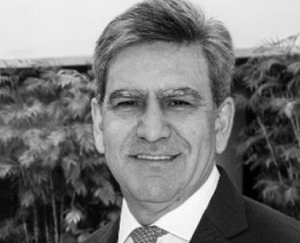
Speaker
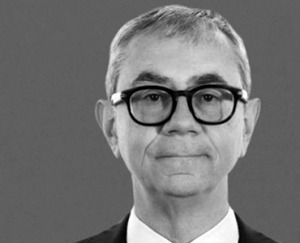
Speaker
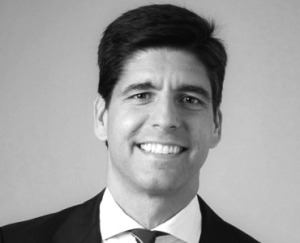
Speaker
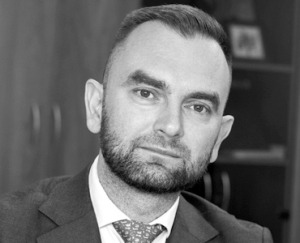
Speaker
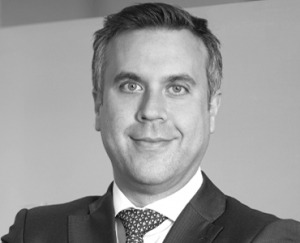
Moderator
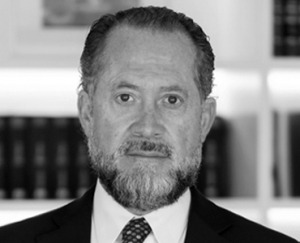
Speaker
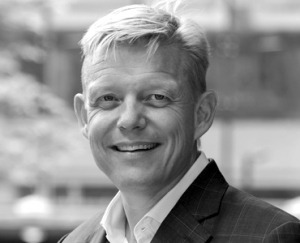
Moderator
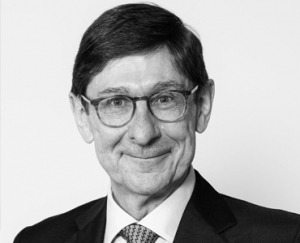
Speaker
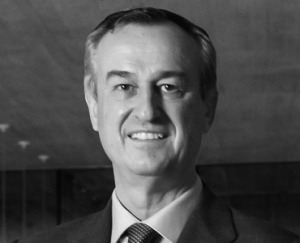
Speaker
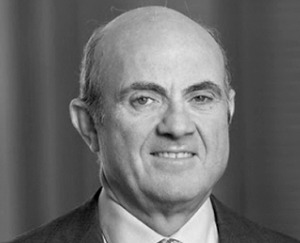
Speaker
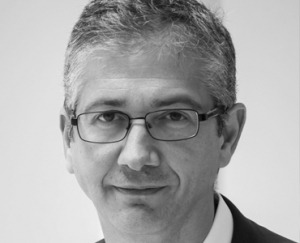
Speaker
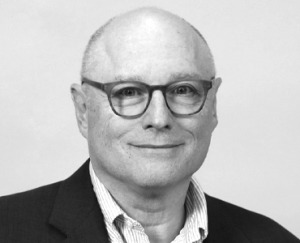
Speaker
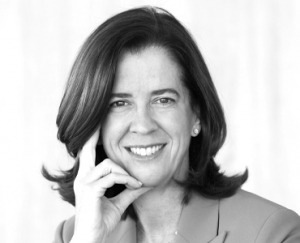
Speaker
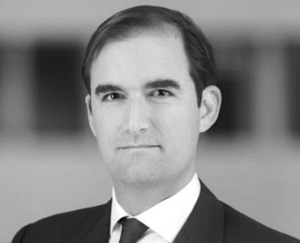
Speaker
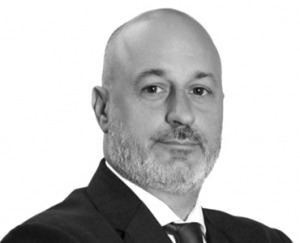
Speaker
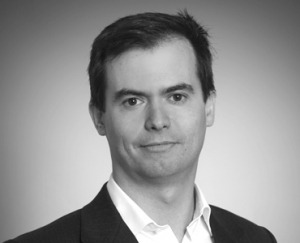
Moderator
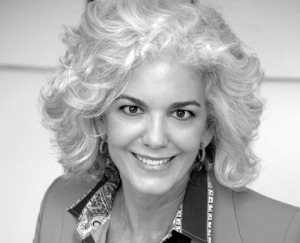
Speaker
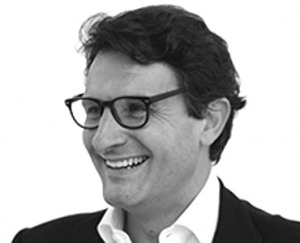
Speaker
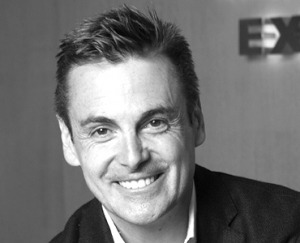
Speaker
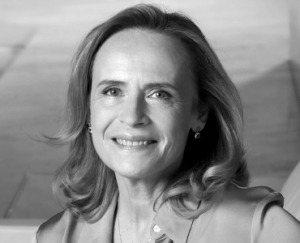
Speaker
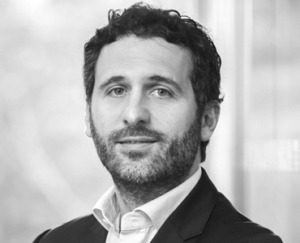
Moderator
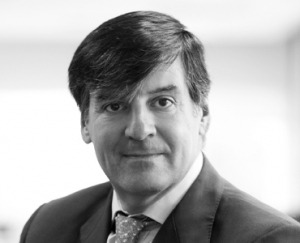
Moderator
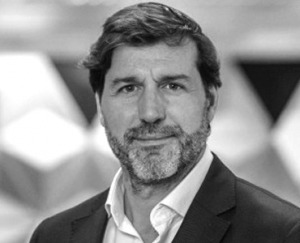
Speaker
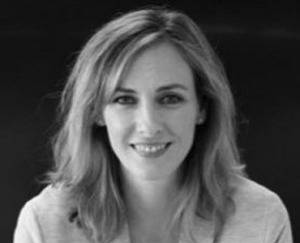
Speaker
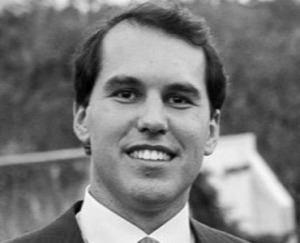
Speaker
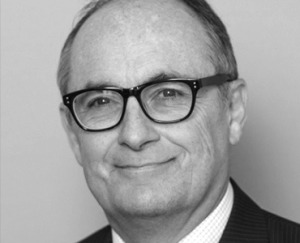
Speaker
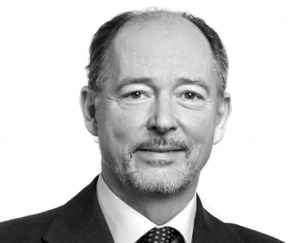
Moderator
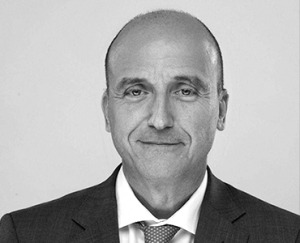
Speaker
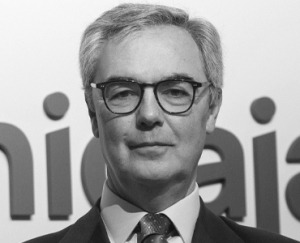
Speaker

Speaker
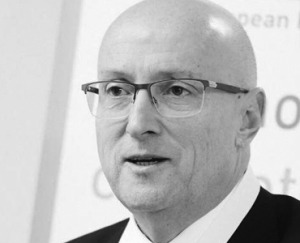
Speaker
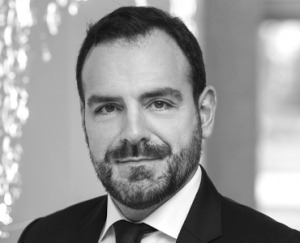
Moderator
The 19 IESE Banking Meeting will be held on IESE’s new campus in Madrid
The fees for this meeting:
On Campus: € 1,200
Online: € 400
On Campus: € 1,000
Online: € 400
On Campus: € 840
Online: Free

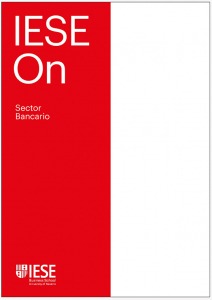
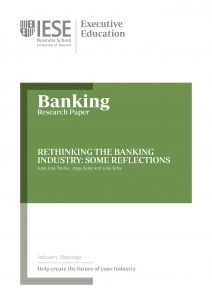
2023 · Navigating the wave of inflation
2022 · Banking: driving bold transformation
2021 · Banking: helping to boost the economy
2019 · Banking in the 2020s: Managing Growth in a Mature Industry
2018 · Reinvent Banking or Improve Bank Management?
2017 · Competitive Banking in a New Society
2016 · Banking in the future
2015 · Banking in Today’s Competitive Environment
2014 · Bank’s Role in Recovery
2013 · Banking: Beyond the Crisis
2012 · Banking: Opportunities after the Crisis
2011 · Designing the New Banking Sector
2010 · Building the Future
2008 · The Global Opportunity
2006 · Innovation and Strategies for the Growth of the Banking Sector in Europe
2004 · (September) Banking in Europe: Building the Future
2004 · (April) Technology and Geographic Space: Strategic Keys for the Banking System
The year 2035 is a decade away and the EU has defined clear goals for it. But predicting how the world of mobility will by then is more difficult than ever. While all experts agree that a fundamental transformation is changing how people and goods are moved in the future, it is less clear how this transformation is taking place. Some questions include the following: how will the transformation be financed, what will be its key business models, how can companies secure the required talent and what will be the impact of China’s increasing exports of electric vehicles to Europe and other continents.
At this year’s 38th edition of our annual meeting, we will discuss these questions while also addressing the “classic” questions relating to the Spanish, European and global markets. In doing so, we continue our tradition of providing a premier platform for senior executives, industry experts and leading academics to exchange ideas about the future of mobility and actively engage in thought exchange in sessions, workshops and a closing network event.
| 09:30-09:45 | Welcome
• Prof. Marc Sachon, Chairman of IESE Mobility, IESE Business School |
| 09:45-10:15 | Introduction & Setting |
| 10:15-11:30 | Panel 1: Industry transformation: challenges and financing
• Lorea Aristizabal, Corporate Development Director, CIE Automotive and Board of Directors Member, SERNAUTO Moderator: Vicente Segura, Automotive Responsible Partner, Deloitte Spain |
| 11:30-12:00 | Coffee – Break |
| 12:00-13:15 | Panel 2: The Role of Technology to reach 2035
• Dr. Robert Meyer, SVP Vehicle Line etron Models, Audi AG Moderator: Prof. Marc Sachon, IESE Business School |
| 13:15-14:30 | Lunch |
| 14:30-15:45 | Panel 3: Customer Needs in 2035
• Enrique Pastor, Head of Portfolio & Product Strategy SEAT & CUPRA Moderator: Andrés Martínez Verde, Partner Customer&Marketing, Deloitte Spain |
| 15:45-16:15 | Coffee – Break |
| 16:15-17:30 | Panel 4: Mobility-related Business Models in 2035
• Dr. Rainer Feurer, SVP BMW Moderator: Prof. Marc Sachon, IESE Business School |
| 17:30-18:00 | Coffee – Break & Workshop Preparation |
| 18:00-19:25 | Workshop
The topics to be discussed are: TOPIC 1: Industry transformation: challenges and financing TEMA 2: The Role of Technology to reach 2035 TEMA 3: Customer Needs in 2035 |
| 19:25-19:35 | Closing
• Prof. Marc Sachon, Chairman of IESE Mobility, IESE Business School |
| 19:30 | Mobility Tapas: Networking on IESE Terrace with tapas and beverages |
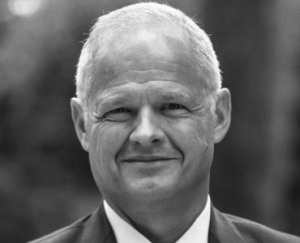
Chairman of IESE Mobility
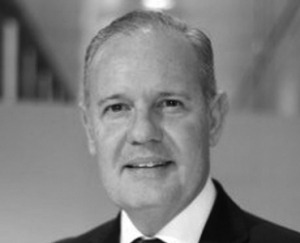
Co-organizer of the meeting
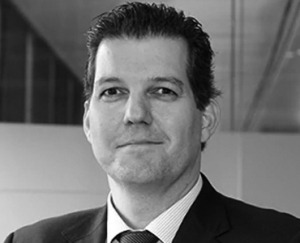
Co-organizer of the meeting
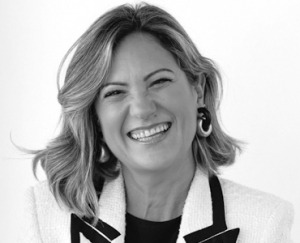
Speaker
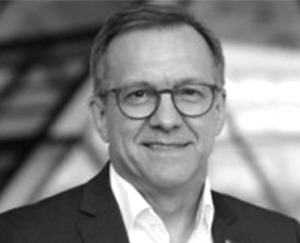
Speaker
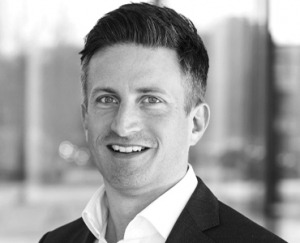
Speaker
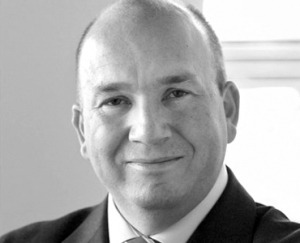
Speaker
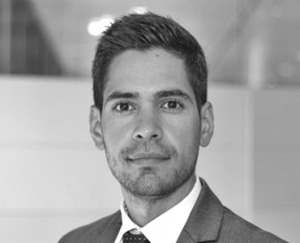
Moderator
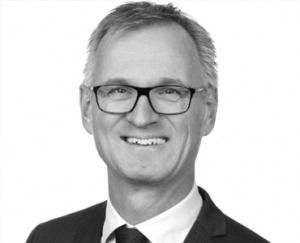
Speaker
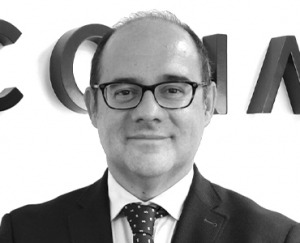
Speaker
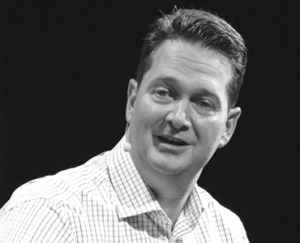
Speaker
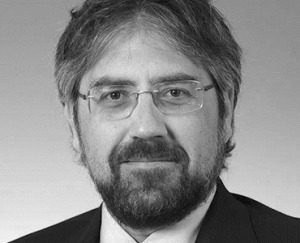
Speaker
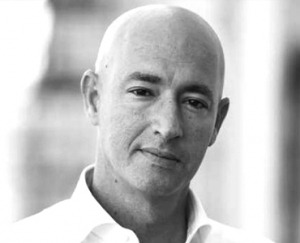
Speaker
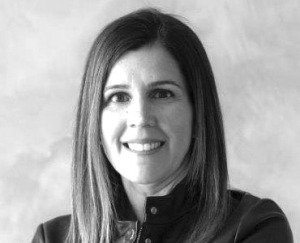
Speaker
The 38 IESE Mobility Meeting will be held on IESE Barcelona
The fees for this meeting:
On Campus: € 1,000
Online: € 400
On Campus: € 900
Online: € 400
On Campus: € 700
Online: Free
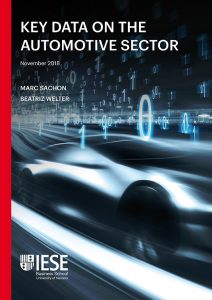
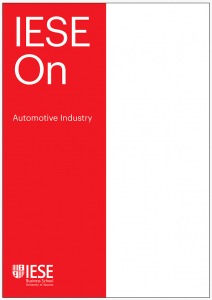
2023 · Continuously discontinuous?
2022 · Genesis
2021 · A new world · Session May 5-6, 2020
2020 · A new world · Session November 3, 2020
2019 · Diversity: Technology, Ecosystems & People
2018 · Back to the future
2017 · The age of turbulence
2016 · The Battle of Automotive
2015 · The Next 30 Years
2014 · Why Automobile
2013 · Two worlds, two speeds?
2012 · Tectonic Shifts
2011 · Megatrends in the Automotive Industry
2010 · Reinventing the Industry
2009 · The Automotive Industry in 2020
2008 · The Automotive Industry in the 2010’s: The Critical Decade?
2007 · Managing Global Uncertainty
2006 · Sustainability of the Automotive Industry in Europe
2005 · Competition and Cooperation
2004 · Back to Basics
2003 · Looking to the Future with Imagination
2002 · Competing Out of Confusion
2001 · Tightening the Screws
2000 · Consequences of Consolidation
1999 · Gods, Tombs, Brands and Experts
1998 · Another Call for Attention
1997 · Entering the 21st Century: The New Trends
1996 · East and West, the Challenge for Europe
1995 · Balance, Present and Future
1994 · How to Face the Recovery?
1993 · Where are we Going?
1992 · The End/Beginning of the Countdown
1991 · Building Up from the Crisis
1990 · Learning Organizations, Change and Innovation. Routines of the 90’s
1989 · A Call for Attention
1988 · Towards 1992: Single Market Consolidation
1987 · The Value-Added Chain in the Automotive Sector
1986 · The Future of the Automotive Sector
In the next decade, the healthcare sector is set to undergo an unprecedented metamorphosis driven by the confluence of several factors: an ageing population, ground-breaking advancements in life-sciences, the enormous potential of data-driven healthcare and generative AI. These dynamics will usher in an era demanding new business models and innovative financial approaches to effectively navigate the evolving landscape.
Breakthroughs in biotechnology, genomics and pharmaceuticals stand poised to revolutionize disease management and treatments. Emerging technologies, like CRISPR gene editing hold the promise of not only treating but curing genetic disorders, changing healthcare as we know it.
Generative AI emerges as a potent force poised to address paramount challenges within the sector, potentially revolutionizing healthcare delivery and improving aspects like access and patient experiences. The exponential growth of health-related data, catalyzed by digitalization and wearable technologies offers enormous opportunities, but what is next and how should we prioritize? In this context, the pursuit of a value-based healthcare approach takes center stage.
All this transformation will take place in a context where the difference from hospital treatments and care at home will become more blurred.
Under the lemma “Healthcare 2030. Envisioning the next decade” IESE Healthcare will reflect on the imminent challenges, innovations and unparalleled opportunities that will shape the future of healthcare. We aim to explore key questions about the future of care, technology´s role, sustainability in an ageing world, disruptive technologies in the horizon and the delicate balance between the data revolution and privacy protection. It will also bring together top experts from the sector to think about how the different agents in healthcare can work together to continue building a healthier society while leveraging the enormous potential of technology.
| 09:00-09:30 | Opening
• Juan Yermo, Director General, Farmaindustria |
| 09:30-10:00 | Global Economic Outlook. Implications for healthcare in the next decade<
Prof. Núria Mas will look at the key trends on the global economy and the new geopolitical reality and she will reflect on their implications for healthcare. |
| 10:00-10:20 | Keynote: How AI and Robotics are expanding Digital Health
The inventor of the ZEUS robotic surgical system, which performed the world’s first transatlantic surgery, the CEO of RobSurgical and the CEO of ABLE human Motion will reflect on what is next in health robotics. • Yulun Wang, Ph.D. Fellow, Teladoc Health, Co-Founder & Chairman Sovato Health, and Co-Founder & Chairman World Telehealth Initiative Moderator: Prof. Núria Mas, IESE Business School |
| 10:20-11:15 | PANEL I: Revolutionizing healthcare: the future of robotics
Robots are getting ready to redefine healthcare. From medical robots helping healthcare professionals provide smarter, more comprehensive care to their patients and changing the medical profession, to exoskeletons training the body how to move properly again, the possibilities are enormous. What is next in health robotics? • Yulun Wang, Ph.D. Fellow, Teladoc Health, Co-Founder & Chairman Sovato Health, and Co-Founder & Chairman World Telehealth Initiative Moderator: Prof. Núria Mas, IESE Business School |
| 11:15-11:45 | Coffee Break |
| 11:45-12:45 | PANEL II: Data & AI
Data and AI promise a future where healthcare is proactive, personalized, and efficient, revolutionizing patient outcomes and transforming the way we approach wellness. What is coming on Gen-AI and machine learning technologies for the discovery of biologics? How can we protect patient´s data? • Cristina Dolan, CEO InsideChains, Co-Founder Additum and Board Director: WiseKey (SWX: WIHN), SEALSQ (NASDAQ:LAES), and GRIID (NEO:GRDI) Moderator: Álvaro Ortín, Partner of AI & Data, Deloitte Spain |
| 12:45-13:45 | Workshop
The topics to be discussed are: TOPIC 1: How will technology and sustainability drive future value-based healthcare models? |
| 13:45-14:45 | Lunch |
| 14:45-15:45 | PANEL III: Longevity: the change in ageing
Half of today´s 5-year olds in advanced economies are expected to live to 100. Are our healthcare systems prepared? Alzheimer´s is the most common neurogenerative disease, but, with more early detection tests and a new treatments, a new era for the treatment of Alzheimer is starting. What is coming in the next decade? • Cristina Andrés-Lacueva, Professor, Icrea-Academia, Leader CIBERFES Fraily & Healthy Aging, ISCIII. Director of Biomarkers and Nutritional Metabolomic Core-University of Barcelona-TMIC-Metabolomic Innovation Center, Canada-Spain Moderator: Prof. Núria Mas, IESE Business School |
| 15:45-16:05 | Break |
| 16:05-16:30 | Presentation of the workshop conclusions |
| 16:30-17:30 | PANEL IV: Value-Based Healthcare
To improve both patient population health and sustainable financial outlooks, healthcare providers and companies should move towards value-based healthcare. What should be our goal? How could we transition faster to VBHC? Which are some examples of success? • Roser Fernández, Director General, Unió Catalana d’Hospitals Moderator: Rocío Arrese, Manager of Customer & Marketing, Deloitte Spain |
| 17:30-18:30 | PANEL V: Innovation for Sustainable Health
The twin challenge of increasing demand for health and social care and increasing competition for limited financial resources is impacting the health sector. How could innovation change? How should we change our mindset to move in this direction? • Manuel Barberá, Managing Director – Head of Healthcare, Corporate Banking, CaixaBank Moderator: Prof. Núria Mas, IESE Business School |
| 18:30-18:45 | Final thoughts
• Pablo Crespo, Secretary General of the Spanish Federation of Healthcare Technology Companies (Federación Española de Empresas de Tecnología Sanitaria) |
| 18:45 | Closing
• Manel Balcells i Díaz, Minister of Health of the Government of Catalonia |
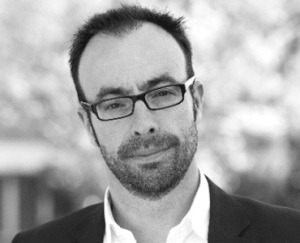
Speaker
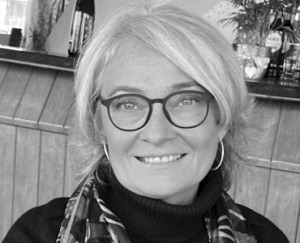
Speaker

Moderator
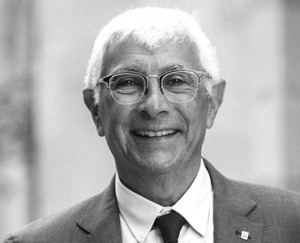
Speaker
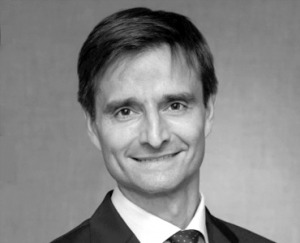
Speaker
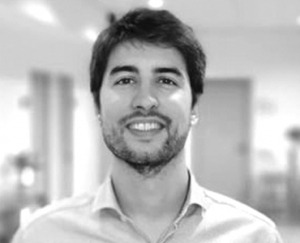
Speaker
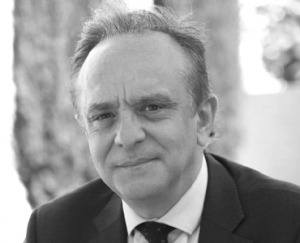
Speaker
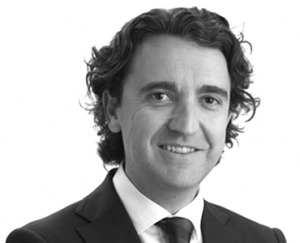
Speaker

Speaker
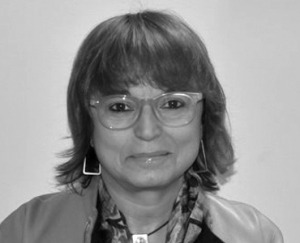
Speaker

Speaker
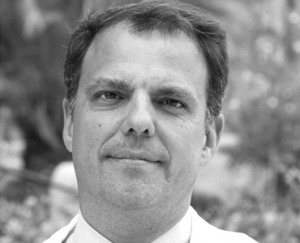
Speaker
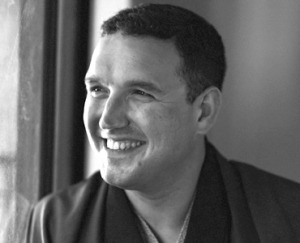
Speaker

Speaker
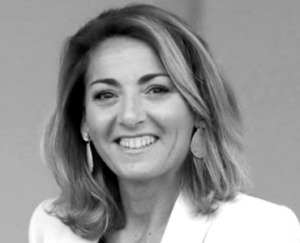
Speaker
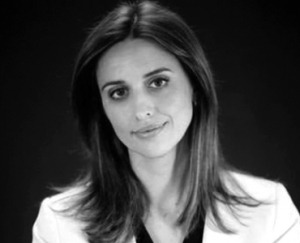
Speaker

Moderator
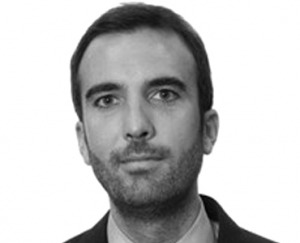
Speaker
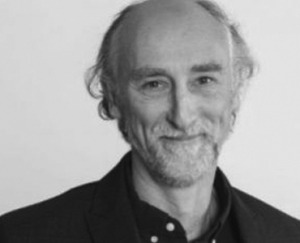
Speaker
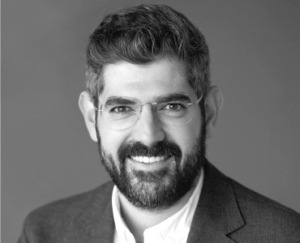
Speaker
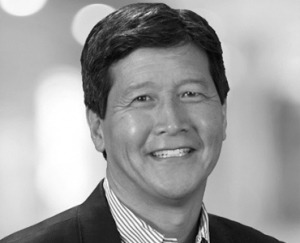
Speaker
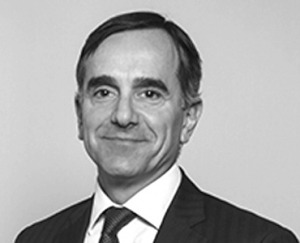
Speaker
The 30 IESE Healthcare Meeting will be held on IESE Barcelona
The fees for this meeting:
On Campus: € 1,000
Online: € 400
On Campus: € 900
Online: € 400
On Campus: € 700
Online: Free
2023 · Home is the new hospital
2022 · Byte-Medicine: the revolution of the convergence of technology and medicine
2021 · Life sciences: the engine for the recovery after COVID-19
2019 · Rising to the Challenge: Healthcare First
2018 · Working for a healthy society
2017 · Building a Sustainable Healthcare Model
2016 · Towards Value-Based Healthcare
2015 · Innovation for the New Healthcare Era
2014 · Propelling Change
2013 · Making Patient-Centric Care Happen
2012 · Value Creation and Value Sharing
2011 · Toward a Change of Model
2010 · The Healthcare Industry in 2020
2009 · Toward a New Model of Industry (Pharma) / Recognizing Value (Healthcare)
2008 · Betting on the Sector (Pharma) / Innovating With Responsibility (Healthcare)
2007 · The Global Opportunity
2006 · Contributing More (Pharma) / The Value of Technology (Healthcare)
2005 · Healing Under Pressure
2004 · Rethinking Health
2003 · Health Technologies and the Management of Health Budgets
2002 · Key Variables for Consideration
2001 · Whither the Spanish Health System?
2000 · The Market for Medical Devices in the European Union
1999 · New Millennium, New Challenges
1998 · Health Reform in Practice: New Ways to Buy and Sell
1997 · Economic Limits of Health Since 1998
1996 · Spanish Health: Reality, Change and Adjustment
1995 · Present and Future
1994 · Building From the Crisis
In contrast to the slogan of the May ‘68 protests in France “Be realistic! Demand the impossible!,” there is an urgent need to apply an idealistic approach to what is possible as thoroughly and quickly as we can in order to avoid the pessimism and frustration of the impossible. Because deep-seated tensions are brewing.
The cruel invasion of Ukraine has stirred up many neglected emotions. We read with perplexity that reform-minded Macron has called for a regulatory pause. In the same week last May, President von der Leyen, who had always been a strong supporter of the EU’s green agenda, said that attention should be paid to the capacity to absorb the new measures. Meanwhile, a new political party, BBB, a farmer-citizen group, suddenly came to the forefront in the Netherlands by becoming the most voted party. This coincided with the protests of the Yellow Vests in neighboring France.
Looking further afield, we saw India’s energy minister calling for the prioritization of growth (i.e., reducing poverty) over decarbonization. India also planned to imitate the practices of China, which have made the country responsible for approximately 30% of emissions. In this context, the BRICS countries now account for 50% of emissions compared to approximately 30% by the OECD countries. However, these figures would look different if we examined our responsibility for cumulative carbon emissions in the atmosphere.
Moreover, the security of each link in the value chain of competitive primary energy supply, critical raw materials and technologies in use is once again of primary importance. They are now being brandished as a sign of strategic power. All this is eroding the framework of trust in the value chains and their planetary logistics routes, which used to be held up by sound agreements in support of multilateralism. The world map is once again divided into blocs of many different colors.
The location of mines of critical raw materials, the refineries where they are processed and the plants where technology goods are manufactured have suddenly become highly relevant. Along these lines, The United States’ recent Inflation Reduction Act (IRA) and current discussions in Australia on how to control the industry of critical materials processing highlight the new concerns that will certainly delay and increase the cost of the colossal transformation involved in the decarbonization of society.
However, the relevant provision of global public goods such as peace, health, food security, prosperity leading to the elimination of poverty, and decarbonization will not be possible without multilateral cooperation among sovereign states.
How should these movements be interpreted in Europe, where public opinion is so decisive when it comes to legitimizing political action? Initiative, power and the economy have always been delicate matters and the essential ingredients of any government of citizens. For these subjects with dignity, rights and obligations, the pendulum of power has always swung between the idealistic opportunity of achieving the impossible and the art of doing what is possible. Although this second option almost always lacks epic, lyrical appeal, when it is implemented with realistic ambition, it can achieve historic heights of social progress while avoiding the convulsions engendered by frustration with the unattainable. When doubts arise, finding inspiration in the nearly 30 centuries of Pharaonic Egyptian history is highly recommended.
We should therefore make a distinction between the goals (besides the necessary and urgent ones) that can be considered achievable and the ones that are unfortunately not currently achievable, either because the enabling technologies are not available (2022 update of the IEA’s Tracking Clean Energy Progress) or, as in other cases, due to the sovereign decision of states.
Having reached this point, by making use of all the technological options available, based on the principle of technology neutrality, and by working smart at a steady pace, let’s take a cold hard look at the priorities that should form part of the idealism of the possible.
| 14:45-15:15 | Registration of participants |
| 15:15-15:45 | Opening
• Prof. Juan Luis López Cardenete, Academic Director of the Meeting, IESE Business School |
| 15:45-16:55 | Electricity: For the rapid, comprehensive decarbonization of electricity with greater competitiveness and sovereignty.
• Pedro Linares, Professor, ETS-ICAI, Universidad Pontificia Comillas Moderator: Prof. Juan Luis López Cardenete, IESE Business School |
| 16:55-17:25 | Coffee break |
| 17:25:-17:55 | Interview
• Ana Palacio, Former Minister of Foreign Affairs for Spain and visiting professor at Edmund Walsh School of Georgetown University Moderator: Prof. Juan Luis López Cardenete, IESE Business School |
| 17:55:-18:40 | Efficiency: How energy efficiency and energy intensity are contributing to the ET.
• Iñigo Bertrand, CEO, Edison Next Moderator: José María Calvo-Sotelo, Associate Professor of Decarbonization, IE Business School |
| 18:40-19:25 | Technology: Nuclear fusion and nuclear fission in the 30-year outlook.
• Sehila Gonzalez de Vicente, Global Director, Fusion Energy (CATF) Moderator: Florentino Portero, Senior International Policy Analyst, CIVISMO Foundation |
| 19:25-20:25 | Regulatory predictability, administrative simplicity and legal certainty.
• Mariano Bacigalupo, Professor of Energy Law at UNED Moderator: José María Elias de Tejada, Deloitte Spain |
| 08:30-09:00 | Registration of participants |
| 09:00-09:40 | Opening
• Prof. Juan Luis López Cardenete, Academic Director of the Meeting, IESE Business School |
| 09:40-10:50 | Markets: The pressing need to develop long-term markets.
• Carmen Becerril, President, OMI Group Speaker and moderator: Laureano Álvarez, Deloitte Spain |
| 10:50-11:20 | Coffee break |
| 11:20-12:30 | Renewable energy, industry and overland transport: When will industry and overland transport be decarbonized? The policies and technologies that are driving the process.
• Luis Cabra, EMD Energy Transition, Technology, Institutional Affairs & Deputy CEO, Repsol Moderator: Prof. Massimo Maoret, IESE Business School |
| 12:30-13:30 | Geopolitics: The EU: between eagles and dragons*.
• Alicia García Herrero, Chief Economist for Asia Pacific, Natixis Moderator: John Müller, ABC Journalist |
| 13:30-14:50 | International rivalry over attracting investors.
• Juan Caño, Managing Director, MACQUARIE Speaker and moderator: Jaume Pujol, Deloitte Spain |
| 15:00-16:10 | Lunch |
| 16:10-17:20 | National Integrated Energy and Climate Plan (PNIEC): Networks and storage
• Luis Atienza, President, Grupo Argo Capital Moderator: Oliverio Álvarez, Deloitte Spain |
| 17:20-18:30 | Difficult-to-decarbonize sectors: Hydrogen, renewable gases and CCS.
• Javier Contreras, Managing Director, Nortegas Moderator: Ana Sánchez Palacios, Deloitte Spain |
| 18:30 | Closing
• Prof. Juan Luis López Cardenete, IESE Business School |
* Title inspired by the book by Emilio Lamo de Espinosa
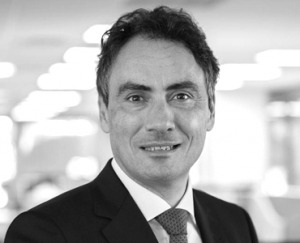
Co-organizer of the Meeting
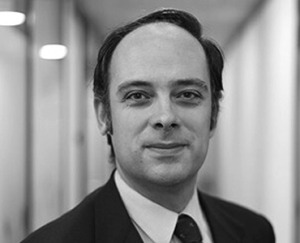
Speaker and moderator
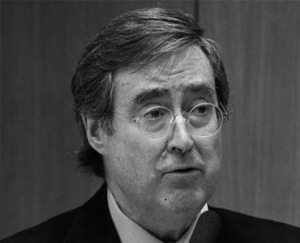
Speaker
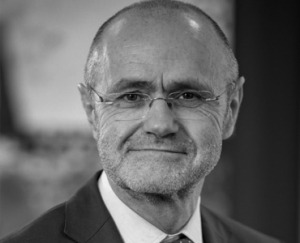
Speaker
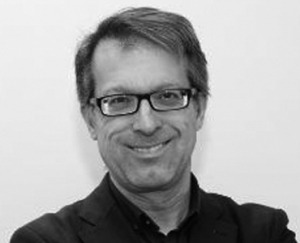
Speaker
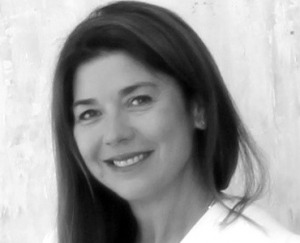
Speaker
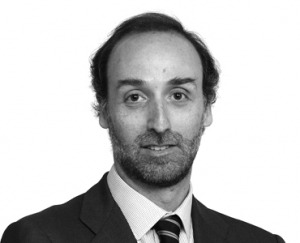
Speaker
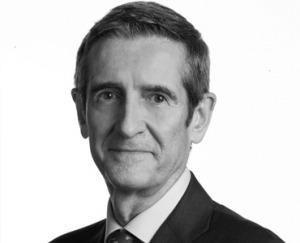
Speaker
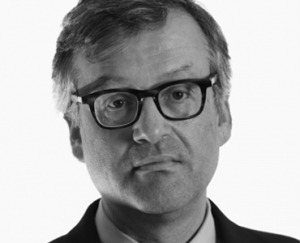
Moderator
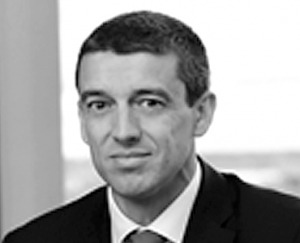
Speaker
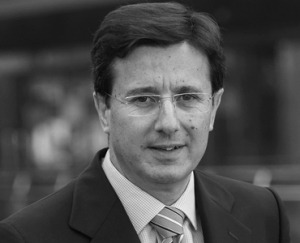
Speaker
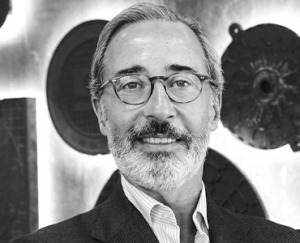
Speaker
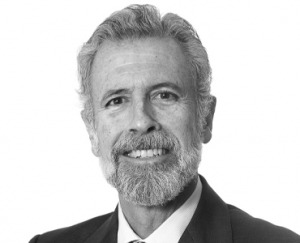
Speaker
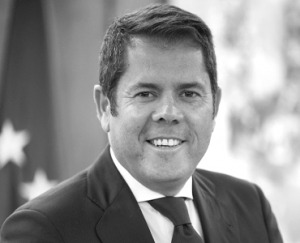
Speaker
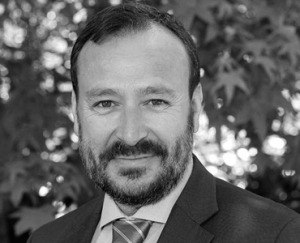
Speaker
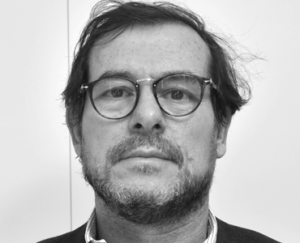
Speaker
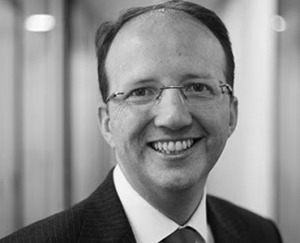
Moderator
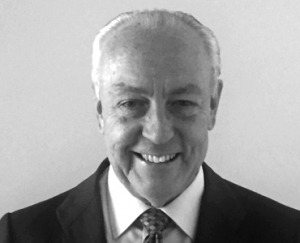
Speaker
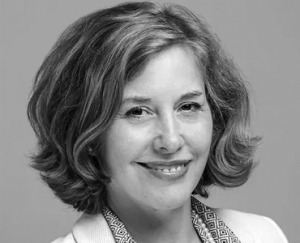
Speaker
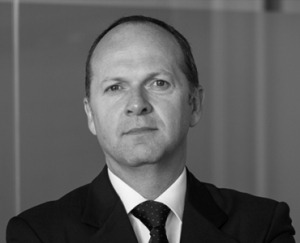
Speaker
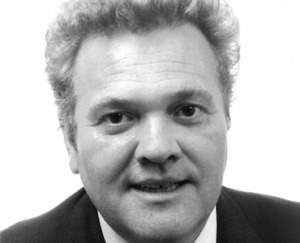
Speaker
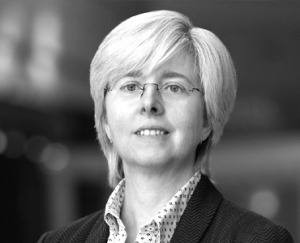
Speaker
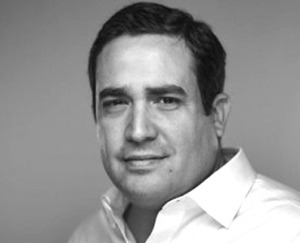
Speaker
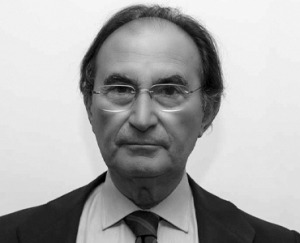
Speaker
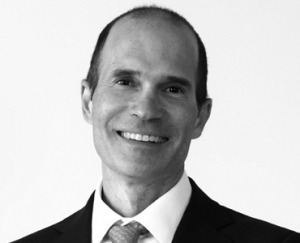
Speaker
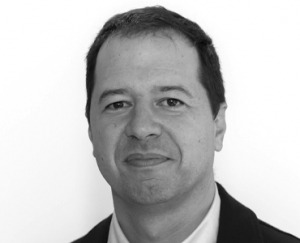
Speaker
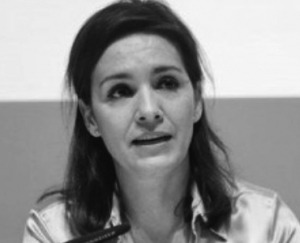
Speaker
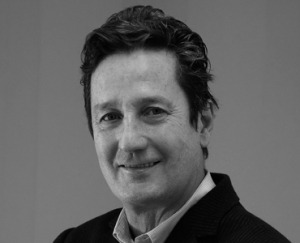
Speaker
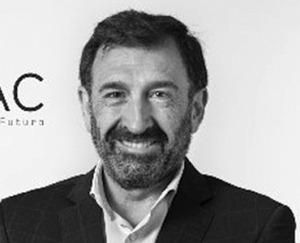
Speaker
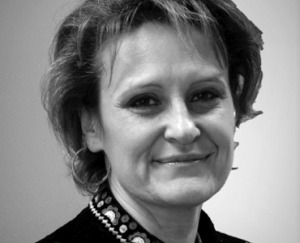
Speaker
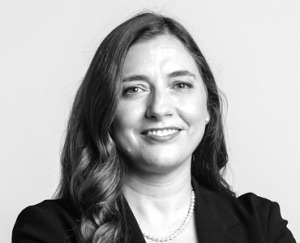
Speaker
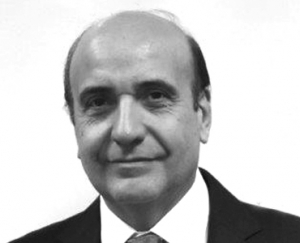
Speaker
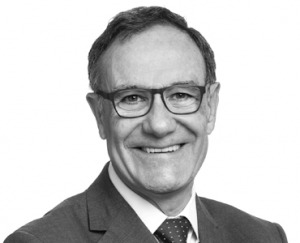
Speaker
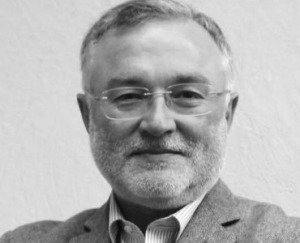
Speaker
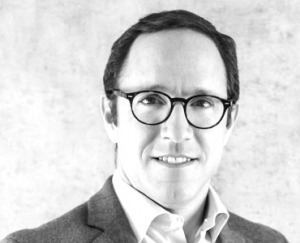
Speaker
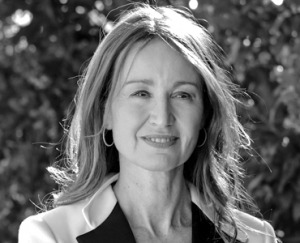
Speaker

Speaker
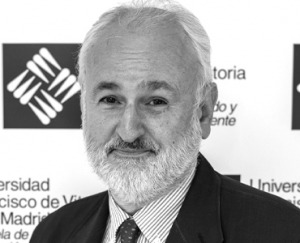
Moderator
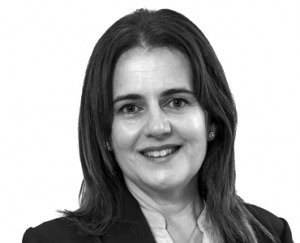
Speaker
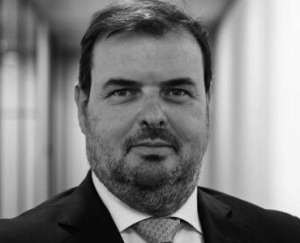
Speaker and moderator
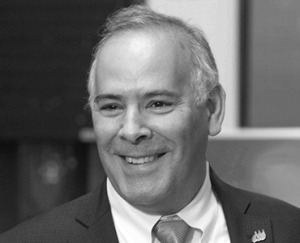
Speaker
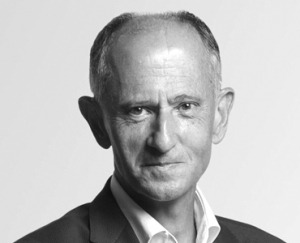
Speaker
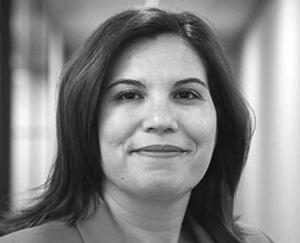
Moderator
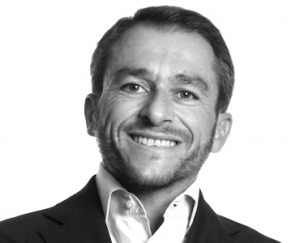
Speaker
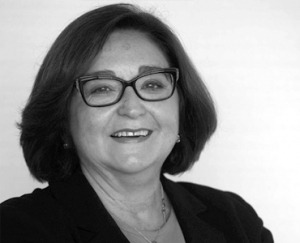
Speaker
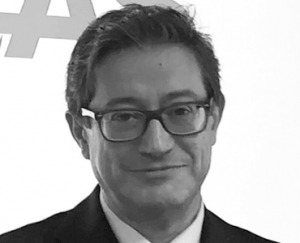
Speaker
The 21 IESE Energy Meeting will be held on IESE’s new campus in Madrid
The fees for this meeting:
On Campus: € 1,000
Online: € 400
On Campus: € 900
Online: € 400
On Campus: € 700
Online: Free
If you want to benefit from a 10% discount,
send an email to cescobar@iese.edu

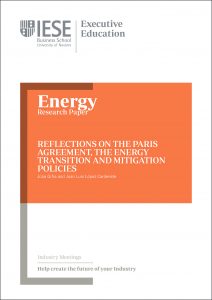
2023 · Let’s Save the Energy Transition – It’s in Danger!
2022 · Energy Transition: Towards a Holistic Strategy
2021 · The post-COVID Energy Transition: same goals, different policies
2020 · An Industry in Transition
2019 · Dimensions for an Effective Energy Transition
2018 · Game changers in the Global Energy System
2017 · Energy Architecture in Transition
2016 · Human Well-being, Growth and Energy Access: New Governance for a Unique Challenge
2015 · The Future of Energy: Who Calls the Shots?
2014 · Quo Vadis, Europe? Shedding Light on an Energy Policy beyond the Electrical Sector Reform
2013 · A New Energy Policy as a Global Paradigm Shift Emerges
2011 · The Impact of the Energy Policy on the Sector’s Competitiveness
2009 · A Debate on the Spanish Energy Sector
2004 · Energy Liberalization and Consolidation in Europe
2002 · A Shift Towards the Convergence of Energy Markets
2000 · Mergers and Strategic Alliances: The Creation and Conquest of the Future
It may have once seemed contradictory to use the words “flexibility” and “real estate” in the same sentence, but not anymore. It has now become a real necessity.
The current state of constant flux and steady stream of different external events have forced us to rethink products, strategies and organizations.
This kind of analysis was common in a number of sectors and an imperative in many others.
Because of our clients’ new reality, changing needs and new approaches to city life, there is now a growing need to perform this kind of in-depth analysis in the real estate industry. This has made it necessary for industry managers to be ready to adapt to change at all times.
At this year’s Industry Meeting, the top-level speakers we’re known for will discuss innovation in the real estate industry and procedures to deliver dynamic, flexible insights from a range of different perspectives and ensure participants get the most out of the meeting.
| 09:00-09:15 | Opening
• Prof. José Luis Suárez, Academic Director of the Meeting, IESE Business School |
| 09:20-10:05 | Real estate innovation: Strategies for adapting to new dynamics and trends
In this session, we’ll discuss different real estate strategies in response to the changing demands of society. Some of the drivers of these changes are the evolution of cities, changing habits, the need for remodeling, climate change in terms of mitigation and adaptation, and energy efficiency. • Javier Faus, Chair, Meridia Moderator: Prof. Carles Vergara, IESE Business School |
| 10:10-10:35 | Academic perspective on the challenges of the real estate sector
Prof. Vergara will talk about the technological, energy efficiency, transportation, financing, and affordability challenges in the sector. These issues need a holistic approach, creating various business opportunities for the industry. • Prof. Carles Vergara, IESE Business School |
| 10:45-11:15 | Coffee Break |
| 11:20-11:55 | Housing market outlook
• Francisco Javier Pérez Medina, CEO, Culmia Moderator: Prof. José Luis Suárez, IESE Business School |
| 12:00-13:15 | Comparing cycles in the services sector
The different segments of the services sector have not all been affected in the same way by recent events in geopolitics, Covid, the rise in interest rates and technological disruption. Some of them have shown similar effects at certain times, whereas others have been affected at other times. In this session, we’ll identify each segment’s current point in the cycle. |
| 12:00-12:20 Interview
• Fernando Bautista, Managing Director, Blackstone |
|
| 12:30-13:15 Panelists
• Alfonso Brunet, CEO, Castellana Properties Moderator: Alejandro Campoy, Managing Director, Savills |
|
| 13:25-14:35 | Workshops
On-campus participants will be divided into two groups to discuss different agenda items. You’ll be able to indicate your workshop preference when you register. You can also inform us if you don’t want to participate. Groups will be organized on a first-come, first-served basis in terms of seating capacity to encourage active participation of attendees. The topics to be discussed are: 1. Different formats: co-, flexi- and senior living In this workshop, we’ll discuss different trends and new housing formulas, all of which end in “living,” and will decide which one will be the most common. We’ll also talk about housing accessibility. • Juan Antonio Gómez-Pintado, Chair, Vía Ágora Moderator: Prof. José Luis Suárez, IESE Business School 2. Technology has finally arrived in real estate Every link along the value chain has been affected by technological changes in recent years and, although not all companies have embraced them in the same way, it’s only natural to conclude that their influence will increase. What elements will be affected the most? To what extent? Will artificial intelligence play a role? • Jorge Pérez de Leza, CEO, Metrovacesa Moderator: Prof. Carles Vergara, IESE Business School |
| 14:45-15:45 | Lunch and appetizers |
| 16:00-16:45 | New operator requirements: what do they ask of real estate?
The evolution of operators is leading to new requirements in real estate. In this session, operators will explain their demands on new products, formats and models to real estate representatives. • Juan Abarca, Chair, HM Hospitales Moderator: Belén Dávila, Key Account Manager, Tinsa Spain |
| 16:55-17:40 | Rising interest rates: impact on debt and equity
Is the current rise in interest rates here to stay? What impact is it having on real estate? In this session, the panelists will discuss the effect on project feasibility, asset and company valuations, availability of funds, alternative and bank financing, and how the flow of funds to real estate has been altered. • Juan José Brugera, Chair, Inmobiliaria Colonial Moderator: Susana Rodríguez, Chief Commercial Officer, Savills |
| 17:45 | Closing
• Mr. José Luis Martínez-Almeida Navasqüés, Mayor, Madrid Local Government |
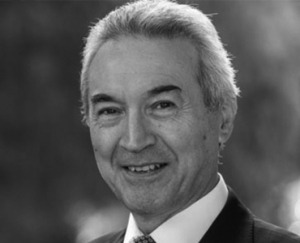
Academic Director
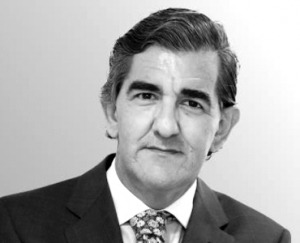
Speaker
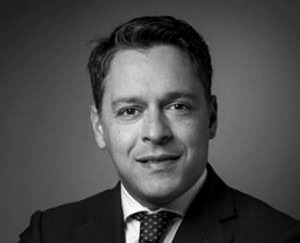
Speaker
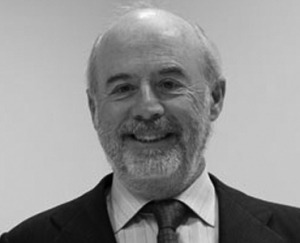
Speaker
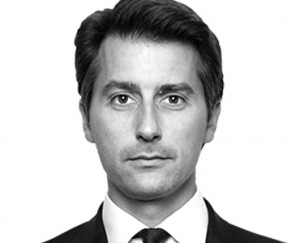
Speaker
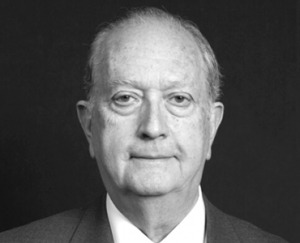
Speaker
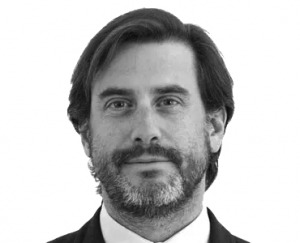
Speaker
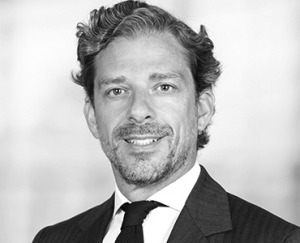
Moderator
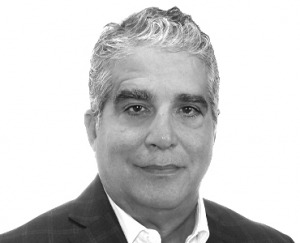
Speaker
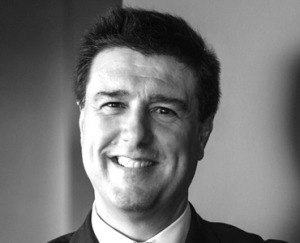
Speaker
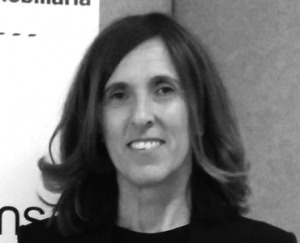
Speaker
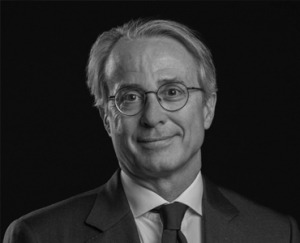
Speaker
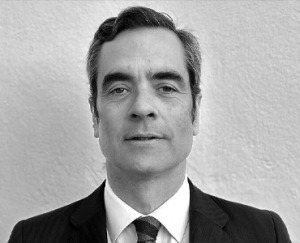
Speaker
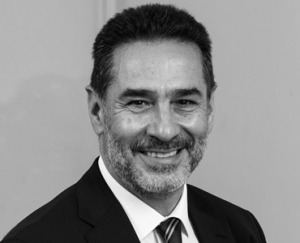
Speaker
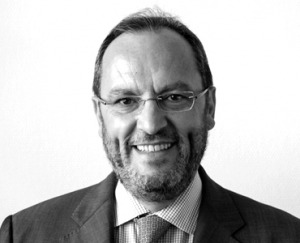
Speaker
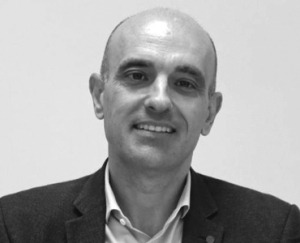
Speaker
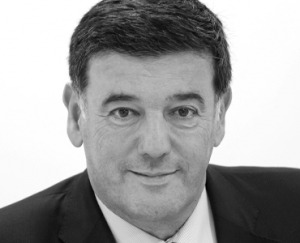
Speaker
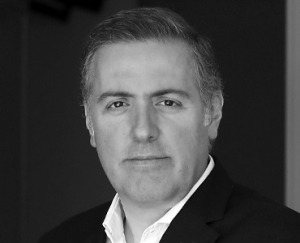
Speaker
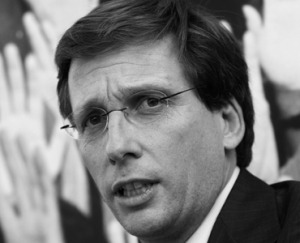
Speaker
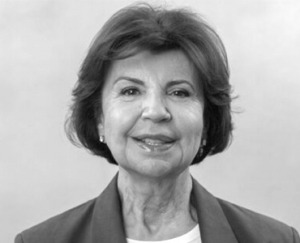
Speaker
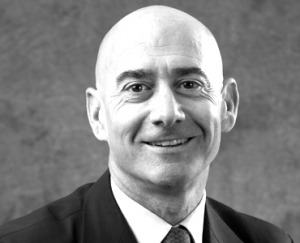
Speaker
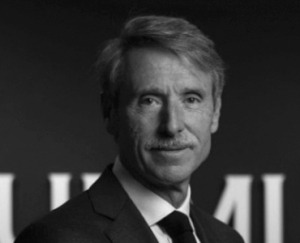
Speaker

Speaker
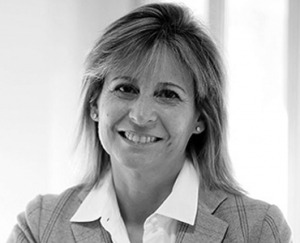
Speaker
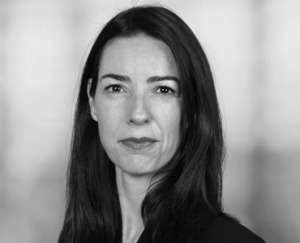
Moderator
The 10 Real Estate Meeting will be held on IESE’s new campus in Madrid
The fees for this meeting:
On Campus: € 1,000
Online: € 400
On Campus: € 900
Online: € 400
On Campus: € 700
Online: Free
If you want to benefit from a 10% discount,
send an email to cescobar@iese.edu
2023 · Real Estate: winning strategies in uncertain times
2022 · Building social sustainability
2021 · The art of evolving
2020 · Real Estate in a Changing Society
2019 · The New Normal in Real Estate
2018 · Where Are We in the Real Estate Cycle
2017 · Real Estate and Society
2016 · The Renovation of the Real Estate Industry in Spain
A series of top-level conversations on the economic, technical and scientific conditions anticipated in the future of the energy industry.
Energy Prospectives will bring together world figures recognized for their experience, vision and knowledge of the energy industry so they can share their expertise with business owners, regulators, senior managers and academics.
Don’t miss the video with the most relevant contributions and reflections from the previous edition. See video
| 08:30 | Opening
• Prof. Jordi Gual, IESE Business School |
| 08:45 | Shaping the Future: regulatory perspectives on the energy transition
• Christian Zinglersen, director of the EU Agency for the Cooperation of Energy Regulators (ACER) Colloquium moderated by Prof. Jordi Gual, IESE Business School |
| 10:00 | Closing |
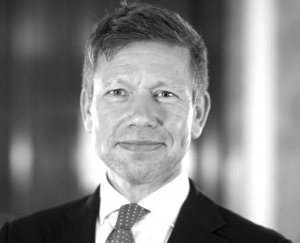
Speaker
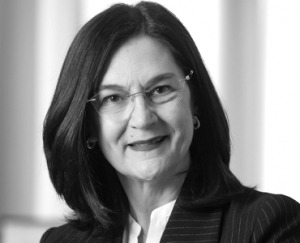
Speaker
Live Online & On Campus – IESE Madrid
Claudia Escobar
cescobar@iese.edu
IESE Industry Meetings
tel: +34 93 253 43 36
The 13 Energy Prospective will be offered simultaneously on campus, attendance only by invitation, and online.
The fees for this meeting:
Online: Free
On Campus: Exclusively by invitation
Online: Free
On Campus: Exclusively by invitation
Online: Free
On Campus: Exclusively by invitation



ANDRIS PIEBALGS

JORGE PADILLA

CHRISTOPHER JONES

IGNACIO PÉREZ-ARRIAGA

MICHAEL LIEBRIECH

CLAUDIO ARANZADI
April 12, 2023 · Energy Prospectives – EP#12
November 4, 2022 · Energy Prospectives – EP#11
June 16, 2022 · Energy Prospectives – EP#10
March 17, 2022 · Energy Prospectives – EP#9
October 26, 2021 · Energy Prospectives – EP#8
June 9 de 2021 · Energy Prospectives – EP#7
March 16, 2020 · Energy Prospectives – EP#6
November 25, 2020 · Energy Prospectives – EP#5
July 14, 2020 · Energy Prospectives – EP#4
October 15, 2019 · Energy Prospectives – EP#3
June 20, 2019 · Energy Prospectives – EP#2
March 14, 2019 · Energy Prospectives – EP#1
There are no more places available on campus, sign up online and follow the entire session live. If before the date of the session the capacity is extended, we will notify you first to those registered online. Thank you very much (limited capacity)
A series of top-level conversations on the economic, technical and scientific conditions anticipated in the future of the energy industry.
Energy Prospectives will bring together world figures recognized for their experience, vision and knowledge of the energy industry so they can share their expertise with business owners, regulators, senior managers and academics.
Don’t miss the video with the most relevant contributions and reflections from the previous edition. See video
| 09:30 | Inauguration
• Prof. Franz Heukamp, IESE Business School |
| 09:45 | Politics and Energy
Felipe González and José María Aznar Colloquium moderated by Núria Mas, IESE Business School professor |
| 11:30 | Closing ceremony
• Rafael Villaseca, President of the Naturgy Foundation |
| 11:45 |
Networking coffee |
Live Online & On Campus – IESE Madrid
Claudia Escobar
cescobar@iese.edu
IESE Industry Meetings
tel: +34 93 253 43 36
The 12 Energy Prospective will be offered simultaneously on campus, attendance only by invitation, and online.
The fees for this meeting:
Online: Free
On Campus: Exclusively by invitation
Online: Free
On Campus: Exclusively by invitation
Online: Free
On Campus: Exclusively by invitation



ANDRIS PIEBALGS

JORGE PADILLA

CHRISTOPHER JONES

IGNACIO PÉREZ-ARRIAGA

MICHAEL LIEBRIECH

CLAUDIO ARANZADI
November 4, 2022 · Energy Prospectives – EP#11
June 16, 2022 · Energy Prospectives – EP#10
March 17, 2022 · Energy Prospectives – EP#9
October 26, 2021 · Energy Prospectives – EP#8
June 9 de 2021 · Energy Prospectives – EP#7
March 16, 2020 · Energy Prospectives – EP#6
November 25, 2020 · Energy Prospectives – EP#5
July 14, 2020 · Energy Prospectives – EP#4
October 15, 2019 · Energy Prospectives – EP#3
June 20, 2019 · Energy Prospectives – EP#2
March 14, 2019 · Energy Prospectives – EP#1


